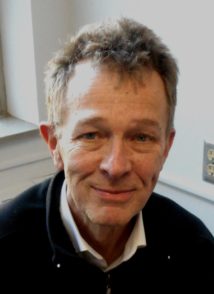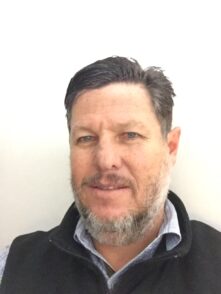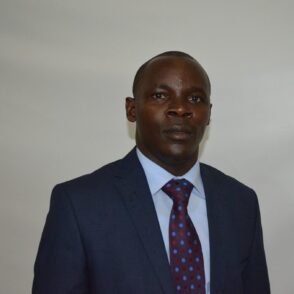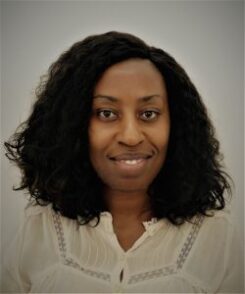About
The low-cost and place-based nature of the Educational Partnerships for Innovation in Communities (EPIC) model provides an attractive alternative to northern-imposed, project-driven development that mostly persists across the global South. EPIC’s emphasis on leveraging existing resources rather than raising new ones and the ability of EPIC to be self-sustaining are both particularly well suited to low-income and low capacity regions. Building on the insights and knowledge gained through EPIC efforts in Northern regions, the EPIC-N Secretariat has begun engaging Southern regions.
This effort for expansion of EPIC networks began with a workshop on applying the EPIC model held at the annual ICLEI “Resilient Cities” conference in Bonn in May 2017. The National Science Foundation (NSF) and the Global Adaptation Network (GAN) managed by UNEP provided key funding to bring together 48 participants (each in university-city pairs) from 13 countries in the Global South including several from SubSaharan Africa. The Bonn workshop was followed by an African-focused one, in Cape Town, that December, and the launching of a fledgling EPIC-Africa network, which led to new programs in Nairobi, Kenya; Durban, South Africa and Lusaka, Zambia. This was followed by yet another workshop, in Durban, in February 2020, which was led by the pioneer programs. During the period of Covid-19 lockdowns, EPIC-N was introduced virtually to several new university-city pairs from the Asian countries of Bangladesh, Indonesia, Maldives, and Nepal, and we expect to continue the Asia effort at the APAN meetings in March of next year.
In Africa, trainees at the 2017 EPIC training event elected to form the EPIC-Africa regional network, a connected but independent regionally-focused network whose confidence, accomplishments and stature continue to grow. This was evident in the 2020 EPIC event, held in Durban, which was designed and facilitated by EPIC-Africa members from South Africa, Zambia and Kenya. At this event another 8 city-university pairs spanning East, West and Southern Africa committed to join the EPIC Africa network and start implementing the EPIC model in their respective cities.
EPIC-Africa Steering Committee
Joel Rogers

EPIC-N Chair and CEO
Director – High Road Strategy Center- Faculty – University of Wisconsin-Madison
Joel Rogers is the Noam Chomsky Professor of Law, Political Science, Public Affairs, and Sociology at the University of Wisconsin-Madison, where he also directs COWS, the national high-road strategy center. Rogers has written widely on American politics and democratic theory. Along with many articles, his books include The Hidden Election, On Democracy, Right Turn, Metro Futures, Associations and Democracy, Works Councils, Working Capital, What Workers Want, Cites at Work, and American Society. Joel is an active citizen as well as academic. He has worked with and advised many politicians and social movement leaders, initiated and helped operate several progressive NGOs (including the New Party, Economic Analysis Research Network, Apollo Alliance, Emerald Cities Collaborative, State Innovation Exchange, and the EPIC [Educational Partnership for Innovation in Communities] – Network). He is a contributing editor of The Nation and Boston Review, a MacArthur Foundation Fellow, and identified by Newsweek as one of the 100 living Americans most likely to shape U.S. politics and culture in the 21st century.

Dr. Sean O’Donoghue
Director- Durban Adaptation Charter and UCCRN Durban Knowledge Hub
One of the EPIC Africa leaders and Head of Climate Change Adaptation Branch, eThekwini Municipality, Durban, South Africa. Dr Sean O’Donoghue has a doctorate in marine pelagic ecology obtained from the University of KwaZulu-Natal (UKZN) in 2010. In March 2011, Sean joined eThekwini Municipality, or Durban, where he manages the Climate Change Adaptation Branch. A key focus of the Branch is Community Ecosystem Based Adaptation, providing work opportunities for Durban’s indigent populations. Sean manages a number of research, inter-city and community partnership projects, and has led the development of the pilot EPIC programme at UKZN. Sean was a lead author in Chapter 5 of the IPCC special report on Oceans, the Cryosphere and Climate Change. He is a member of the Board of Directors of EPIC-N.
Gilbert Siame
Director- Center for Urban Research and Planning, University of Zambia

Dr. Gilbert Siame is one of the EPIC Africa founding leaders and a pioneer of the EPIC model in an African city. He is a lecturer and researcher in the Department of Geography and Environmental Studies at the University of Zambia (UNZA). He holds both a masters and PhD in city and regional planning from the University of Cape Town in South Africa. Dr Siame co-founded and directs the Centre for Urban Research and Planning at UNZA where he also convenes the MSc in Spatial Planning. Dr Siame is a visiting lecturer at the Centre for Urbanism and Built Environment Studies (CUBES) at the University of the Witwatersrand (South Africa).
Mzime Murisa
EPIC-Africa Program Coordinator

Mzime Ndebele-Murisa found EPIC-N through her current work with START as the Program Specialist managing the Future Resilience for African Cities and Lands (FRACTAL) Program and now coordinates the Education Partnerships for Innovation in Communities (EPIC) Africa network. Prior to joining START, she had been based at Chinhoyi University of Technology, and University of Zimbabwe. Mzime has coordinated several multi-disciplinary, collaborative projects in southern Africa focusing on aquaculture; climate change modelling and adaptation such as the SADC Aquaculture Mentorship Program, Climate Impact Research Capacity and Leadership Enhancement and CODESRIA’s Comparative Research Network. Mzime has several publications, with contributions in the IPCC’s AR5 and AR6 Working Group II as well as a Climate Smart Agriculture Manual for Zimbabwe. She holds a PhD in Biodiversity and Conservation Biology from the University of the Western Cape, South Africa; a Masters of Science in Tropical Resource Ecology and a BSc in Biological Sciences from the University of Zimbabwe.
EPIC-Africa Programs
- University of KwaZulu-Natal
- University of Zambia
- Chinhoyi University of Technology
- University of Botswana
- University of Namibia
- Technical University of Mombasa
- Makerere University
- University of Nairobi
- University of Liberia
EPIC-Africa Resources
- Building Preparedness and Resilience to Covid-19 Through the EPIC Model in Lusaka
- Mangrove Conservation as a Nature-Based Approach to Enhancing Biodiversity and Reducing the Impact of Climate Change in the Lake Piso Area of Western Liberia
- Awareness and Education of Climate Change Effects through Visual Arts in Mombasa
- EPIC-Africa Provides a Model for Addressing COVID-19 and Solid Waste Management in Mombasa
- Collaboration for Change: Empowering Communities through EPIC-Africa Partnership in Uganda
- EPIC-Africa Brings Student Voices to Walkability Project in Nairobi
- Gaborone City Council and University of Botswana Partnership Brings Students to the Forefront of National Waste Management Challenges
- Driving Change in Lusaka: The EPIC Model’s Role in Transforming the City
- EPIC Durban Support for the April 2022 Floods
- 2023 EPIC-N Conference: EPIC-Africa Regional Session
- Harare Plans to Address Deteriorating Environmental Conditions Through Phytoremediation, Awareness Campaigns, and Sustainable Municipality Growth
- Creating Environmentally Sustainable Solutions to Waste Management, Natural Disasters, and Invasive Species Outbreaks Through EPIC Partnerships in Durban
- Waste management for slum settlements in Mbale City: A search for sustainable solutions
- Lusaka’s Expanding EPIC Partnerships Look to Solve Capacity Issues
- Brewerville Addresses Waste Management Crisis Through Collective Bargaining Agreement Facilitated by an EPIC Partnership
- GAN April Newsletter
Events
Keep up to date with EPIC-N events including conferences, webinars, workshops, and more here.
News
Follow EPIC-N news, program updates, partnership stories, and more here.
This work © 2017 by EPIC-N is licensed under CC BY-NC-ND 4.0